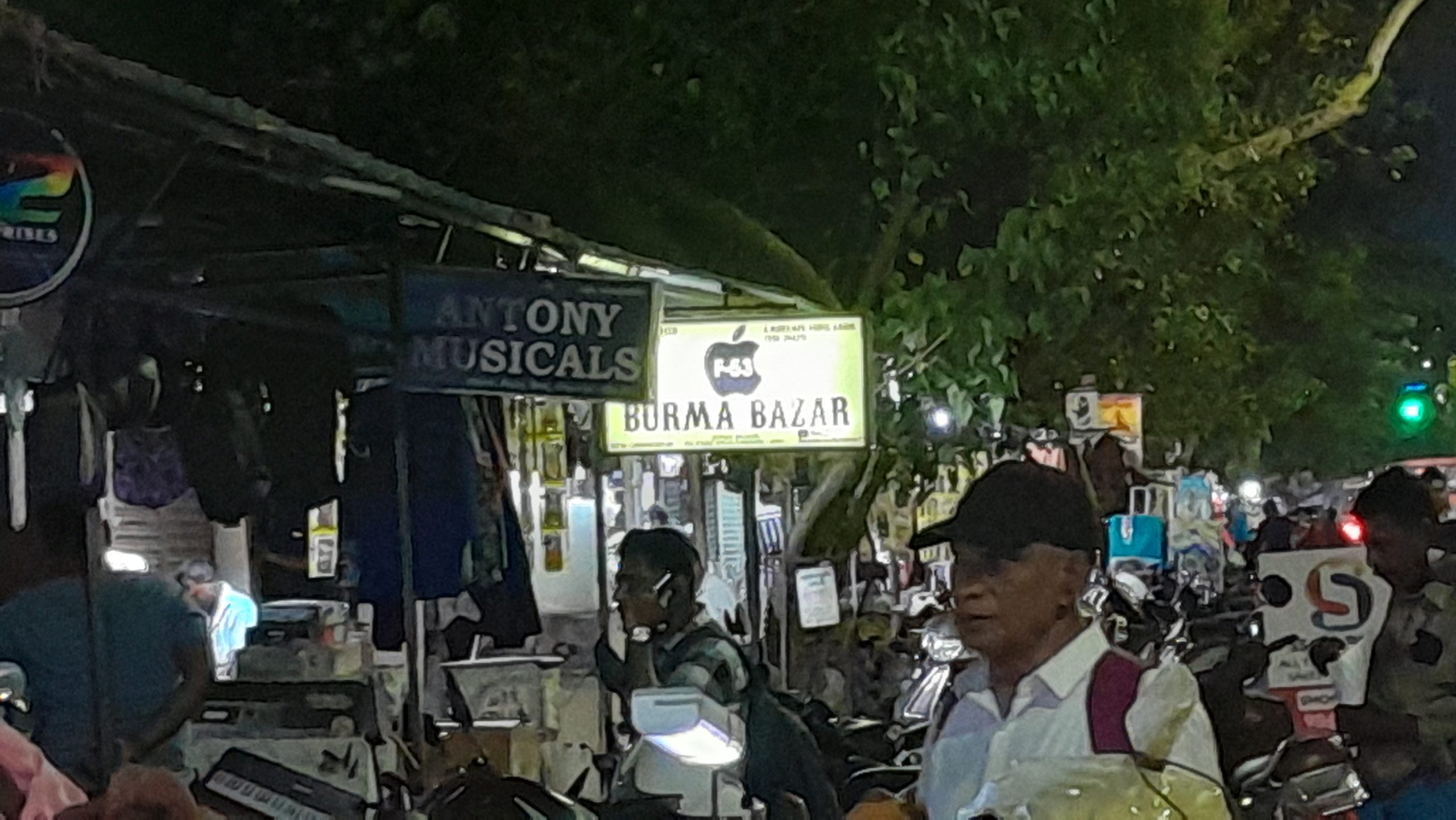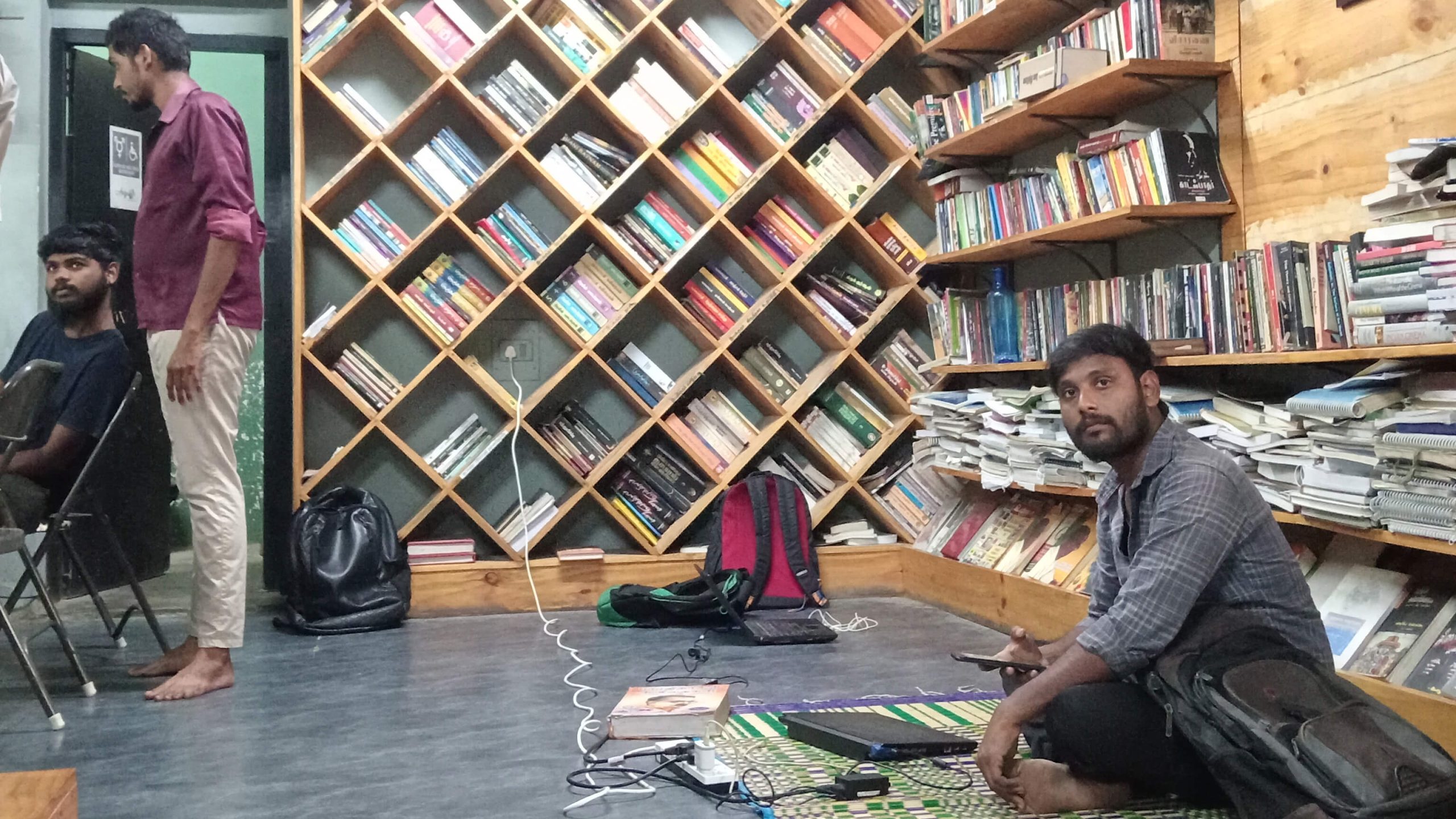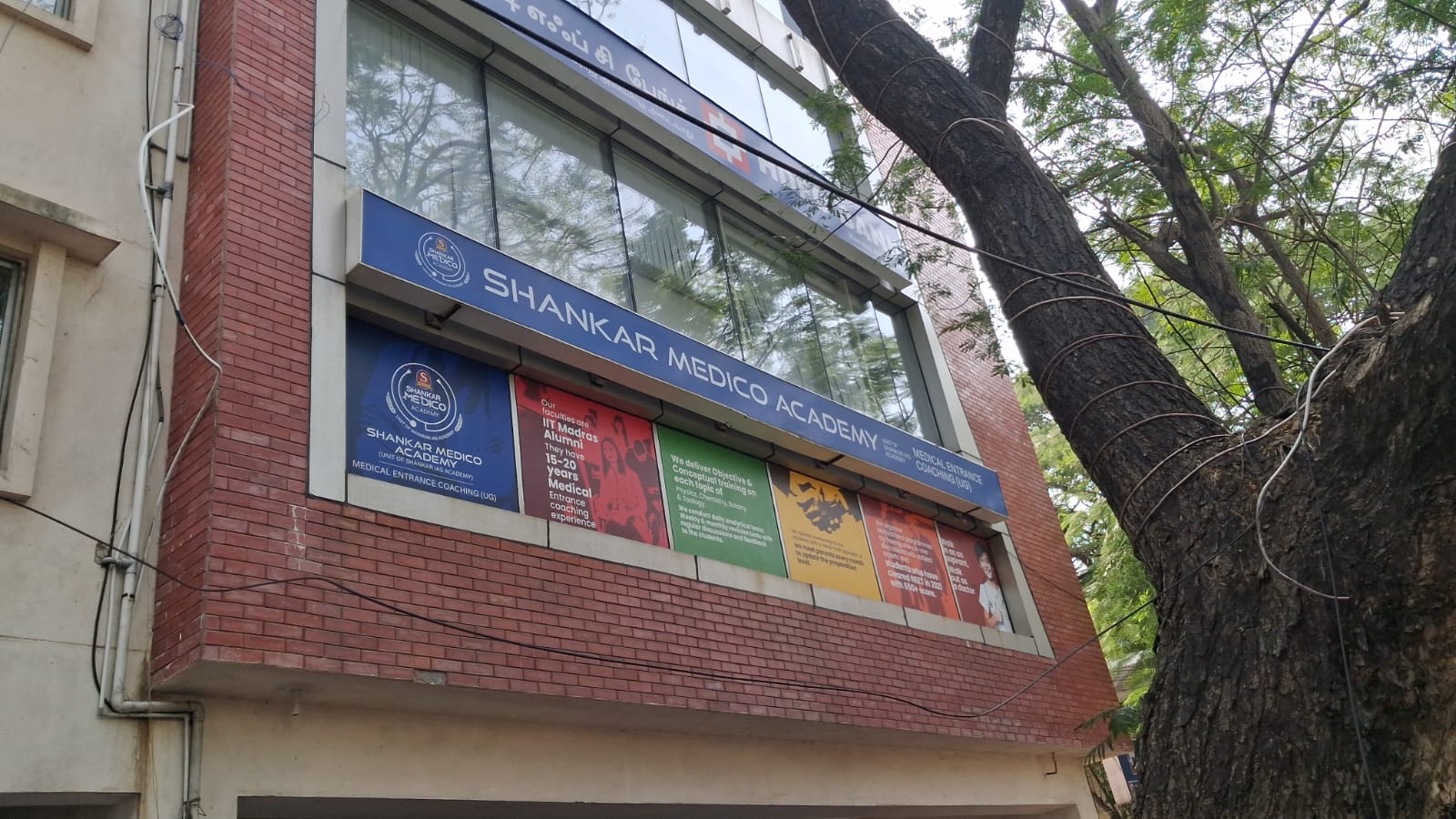The first generation of many shopkeepers at Burma Bazaar returned to Madras (old Chennai) following the military coup of 1962 in Burma. Today it is famous for goods like mobile phones, electronic goods, toys and dry fruits
By Neetika Jha
Shahjehan, a man nearly in his late 20s looks like an ordinary Muslim man in India. White skull cap and a black kurta he stands right outside his mobile phone shop at Burma Bazaar. He, like his father, was born in Chennai and has no memories of Burma, which is today Myanmar. “I am from Chennai, a third generation migrant from Burma,” he says.
Burma Bazaar is famous for rows of small boxy shops that sell a variety of goods from mobile phones, electronic gadgets, toys, clocks, watches to chocolates and perfumes. Located right outside Chennai beach railway station, this congested and seemingly ordinary market was started by Burmese refugees somewhere in late 1960s.
The first generation of many shopkeepers at Burma Bazaar returned to Madras (old Chennai) following the military coup of 1962 in Burma. “My great grandfather had a shoe shop in Burma. He had started selling those shoes in India upon returning but then slowly we shifted to electronic goods because it was more profitable, said Mohammad Afzal. 21 year-old Afzal joined his father’s shop two years ago. “It was 22nd September. 2021,” he recalls. Most of the electronic items in this market are imported from Mumbai and Delhi. He said that about 40 percent of Chennai people come to Burma Bazaar.
Customers start coming in from 4 in the evening. Most of the shops at Burma Bazaar open at 8 in the morning. The rising temperature in Chennai during the months of March and April has however affected their sales. “Lately, the markets have become too dull but we are hoping that sales will rise as festivals are around the corner.

Burma Bazaar lately has become infamous for its duplicate and pirated products. Afzal said that we only sell electronics which are under warranty. “Most of these are Chinese products. We cannot do anything about it. If the customers come back, we change the products,” he added.
The small cubical shops are on rent and stretch to nearly a kilometer on Rajaji Salai road. These shops are rented and every shop owner pays Rs.1600 to the Tamil Nadu government per month. But for some like Basheer even the rent feels too high today. He therefore sits outside a toy shop to sell polarised sunglasses and those copies of branded ones. “This one is a polarised one, I will sell it for Rs.650,” he says pointing towards a brown tinted sunglass. Basheer worked as a helper at one of these shops 15 years ago. He says back then the scene was different. Ab to online ho gaya hai sab kuch. Phone pe hi sab mil jata hai. Bhut nukhsaan ho rha hai hmara (Now everything is online. One can buy things online, we are going into losses.),” he said.
Burma Bazaar that was once famous for its smuggled goods are now facing stiff competition from online shopping websites and local stores. Shami is among the oldest shopkeepers in this Bazaar. He started his shop 29 years ago and is today 59 years old. Dry fruits, Chocolates and cosmetic items are products exhibited at his shops. “When I started, there were around 200 shops. Back then no one was selling these items. Today around 10 shops sell the same,” he said.
Razak, who is a regular visitor at the market, feels that the crowd has fallen over the years. “I prefer coming here because it is like a relationship with many of the shopkeepers and also it is easy to bargain,” he chuckles.

Chennai is near to ports. A few of the shopkeepers also export their goods to other parts of India like Andhra Pradesh, Mumbai and Kerala. Most of the exported items are however electronic goods and mobile phones and accessories.
Yasif ( 32), runs a bag shop. He was busy bargaining with a couple for a handbag. After a few minutes of bargaining he managed to sell a lady’s handbag for Rs.200 which 5 minutes before was fixed priced at Rs.400. “People bargain here. That is why we quote the price on the higher side at first instance. Had I said Rs. 200 initially, they would ask me to sell for Rs.100,” he joked.
Shopkeepers stand outside their shop to attract customers crossing by. Bargaining has become an art here. Negotiations are an everyday scene. Sheikh Dawood who deals with fragrances says that now his duplicate fragrances are no more in demand.
The market has about 1000 shops employing about 5000 people. A few like Abu (44) have started to shift to newer trends. His trendy covers for phones are famous in the market. He is aware about online websites but is confident about his product.
Burma Bazaar may not be what it was a decade ago but it still is relevant in the history.




